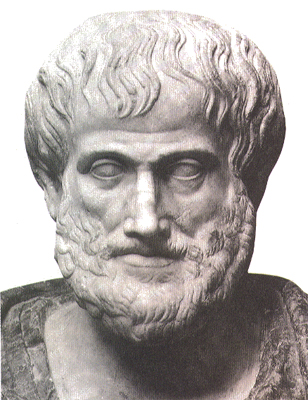Brief review and overview on what Ethics means.
Now, break into groups as per the list below and each group write up five examples of your own particular part of being an "Ethical Person in a Modern Country like Canada."
Groups:
Caring - volunteering and giving back, helping others, environmental protection, looking after your immediate circle of friends and family.
Fairness - equality, freedoms, justice for all, education for all, open representation in government
Respect - "Love is Love", respect all beliefs and traditions
Responsibility - pay taxes, help when possible, don't be part of the environmental problem.
Trustworthiness - don't mislead, take responsibility, be reliable, spirit of the "law"
Citizenship - mature citizenship, don't break law, get a job, don't litter
Follow Up Discussion.
View from from the 30 second mark -
Immanuel Kant in Three Minutes.
Kid Rock - Steal Everything! Sorry, he swears at the very beginning but it's still worth a look.
How do these videos relate to the groups that you were in??
The terms “ethics” and “morals” are often used interchangeably (from the Latin, “mores” = character, customs, habits).
Generally speaking, we use the term “morals” or “morality” to describe one’s beliefs about how people should act.
Generally speaking we use the term “ethics” as the study of the theories about these beliefs.
Three main schools of thought in Ethics:
1.
Theories of Action – how people should act and why.
E.g. Do you download music illegally? (This question is NOT an ethical question)
Should you download music illegally? (This question IS an ethical question)
2. Theories of Character (Virtue Ethics) – examination of peoples’ character traits as either good or bad.
E.g. Hitler had vision, wisdom and courage but was a mass murderer, a fanatic and a racist.
3. Theories of Value – examination of the assessment of worth (value).
E.g. What is goodness? Badness? Justice? Injustice? Can you describe these ideas objectively or are they subject to cultural interpretation? What groups share similar values?
Ethical dilemmas arise in all of humanity’s pursuits.
E.g. What are good and what is evil?
What is a good life?
What is a virtue?
Why should I be moral?
What obligations to people have to one another?
What obligations do people have to shared resources?
Question for YOU:
List FIVE Ethical Choices that you have already made or that you will have to make in the future.
For each of these choices, list all of the sources that you will consult for guidance.
Humanism – way of making moral decisions (behaviour) emphasizing human or secular, i.e. non-religious, sources for guidance, focusing on the role of free will in one’s decision-making.
Kongfuzi (Confucius) and Guatama (Buddha) are some of the earliest writers in Humanism. Based on the Golden Rule – “What you do not like when done to yourself, do not do to others.”
This begs the question, “Is something right because the gods favour it, or do the gods favour it because it is right?” Plato and Aristotle developed this question in a time where society believed in multiple gods (Roman and Greek gods).
More recently Gandhi said, “For a long time I believed that God was truth. Now I know that truth is God.”
Aristotle took this a step further and developed the “Golden Mean” (virtue, or moral excellent) which is the middle path between two extremes. E.g. Generosity is the happy medium between Extreme Stinginess and Extreme Wastefulness.
Question for YOU: List FIVE of your personal VIRTUES in the middle of three columns and list, on either side of it, the two extremes.
Here are some virtues that might apply to you:
Acceptance, Accountability, Bravery, Caring, Charity, Commitment, Compassion, Confidence, Consideration, Cooperation, Courtesy, Dependability, Determination, Discretion, Discipline, Empathy, Enthusiasm, Forgiveness, Generosity, Grace, Gratitude, Helpfulness, Honesty, Humility, Humour, Integrity, Joyfulness, Kindness, Love, Perseverance, Reliability, Responsibility, Sincerity, Tact, Trustworthiness, Vitality, etc.
Moral Agents – someone who is capable of thinking about a moral problem, making a decision on how to act and then taking responsibility for her/his action. E.g. most adults are considered moral agents. Babies and most non-human animals are not considered moral agents because they cannot understand the consequences of their actions. However babies and most non-human animals are still part of the equation because their interests and desires are considered to be important and deserving of moral treatment and consideration – these moral “patients” (not “moral agents”) have moral standing in the moral community. So, you cannot abuse animals and you must give the necessities of life to babies.
Why study Ethics? I think the best reasons are:
1. To recognize moral issues
2. To clarify your own values.
3. To act upon your personal values as per # 1 & 2 above rather than to act upon values you have inherited or have been conditioned to accept.
4. To be able to communicate your decisions and actions.
Some have suggested that Moral Choices are Not Possible.
Nihilism is a school of thought whereby moral truths do not exist because not everyone can agree on the morality of anything – there are no universal truths when it comes to morality (Gorgias also argued that nothing exists, or at least that because we use words and symbols to think about things they cannot exist with certainty, thus knowledge, and moral truths, cannot every be known universally. Others also said similar things – Determinists like Darwin, Newton, Freud – all said similar things, that nature does not care whether something is right or wrong, it just is (e.g. our brains are made of atoms arranged in a particular way so it’s that structure that is our biology which determines our thoughts. This, however, leaves little or no room for “nurture” or “experience” in the nature/nurture debate.








